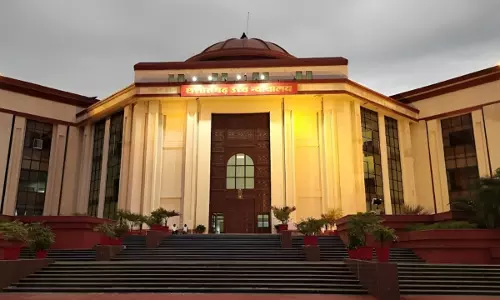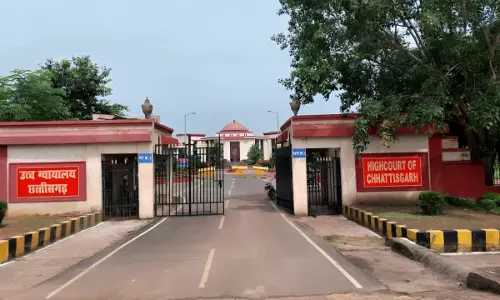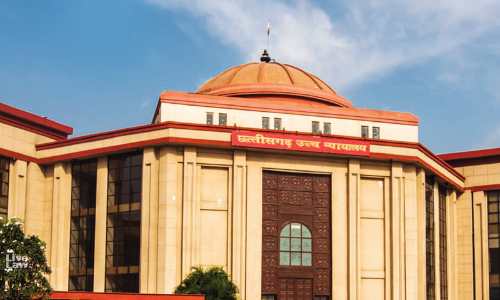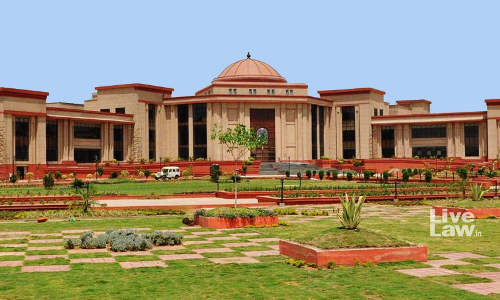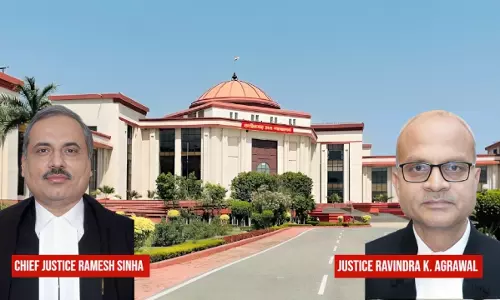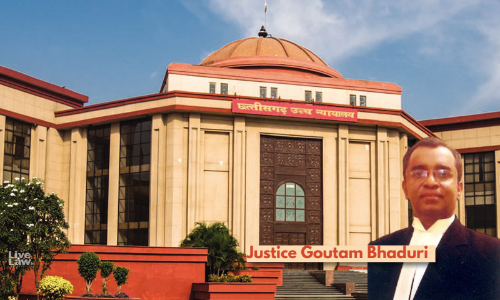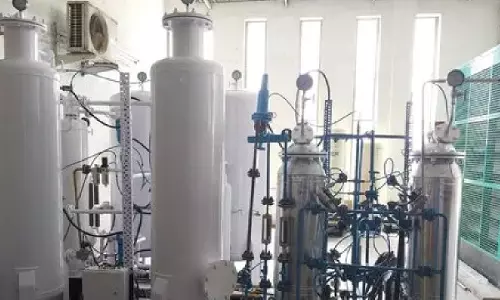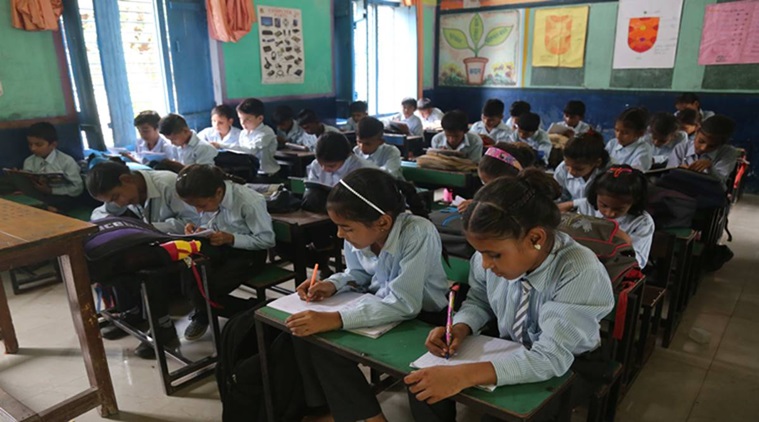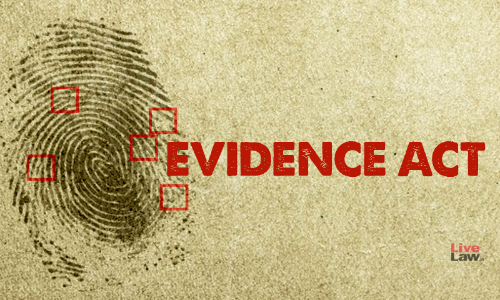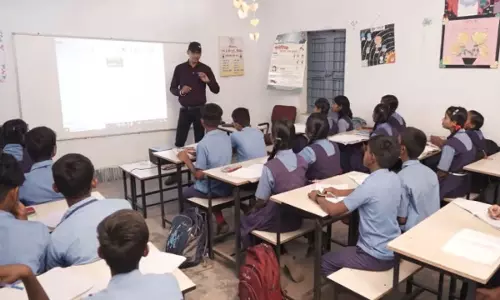Chhattisgarh High Court
Chattisgarh High Court Upholds Maintenance To Woman In Live-In Relationship, Unaware Of Partner's First Marriage
The Chhattisgarh High Court recently upheld an order directing a man to provide maintenance to a woman with whom he had a live-in relationship and their three year old daughter, after noting that the woman was not aware of the man's first marriage and the three children born out of it. The court passed the order in a man's plea challenging order of the Judicial Magistrate First Class–upheld...
Unexplained Cash Credit In Bank Account Would Be Treated As Income : Chhattisgarh High Court
The Chhattisgarh High Court recently upheld an ex-parte assessment under Section 144 of the Income Tax Act, 1961, against an assessee who failed to participate in assessment proceedings or explain the source of a cash deposit of ₹11,44,070 in his bank account. The bench comprising Justices Sanjay K Agrawal and Amitendra Kishore Prasad noted that under Sections 68 and 69A if an assessee...
Stamp Act | Deed Transferring Company's Name Not Conveyance Deed, No Stamp Duty Can Be Levied: Chhattisgarh High Court
The Chhattisgarh High Court observed that no stamp duty could be levied on the transfer of a company's name under Section 23 of the Companies Act, 1956 upon the amalgamation of the companies. The bench comprising Justice Ravindra Kumar Agrawal observed that a deed of amendment of the company's name cannot be called a conveyance deed for levy of the stamp duty because the deed of amendment...
S. 216 CrPC | Alteration Or Addition Of Charges Must Be Based On Court's Satisfaction, Not On Party's Application: Chhattisgarh HC
Dismissing the prosecution's application for framing an additional charge against the accused, the Chhattisgarh High Court observed that it would be impermissible for the trial court to add, alter, or amend the charges under Section 216 Cr. P.C based on the application filed by any of the parties. The bench comprising Justice Ravindra Kumar Agrawal said that only the trial court can alter,...
State Can't Fix Admission Quota In Unaided Minority Institutions: Chattisgarh HC Declares Rule Fixing 50% Domicile Quota As Ultra-Vires
Holding that the State cannot fix quota or percentage of admission in unaided minority educational institutions, the Chhattisgarh High Court declared the Rule 4(1)(d)(i) of the Chhattisgarh Ayush Graduate Course Admission Rules, 2023 as ultra-vires and unconstitutional.A division bench of Chief Justice Ramesh Sinha and Justice Ravindra Kumar Agrawal held so while hearing a writ petition filed...
S.482 BNSS Widened Court's Discretion On Anticipatory Bail By Deleting Guiding Factors Like Nature Of Offence, Antecedents: Chhattisgarh HC
The Chhattisgarh High Court recently pointed that Section 482 of Bhartiya Nagrik Suraksha Sanhita, 2023 (BNSS) has widened the discretion conferred upon a criminal court wile deciding the anticipatory bail plea of a person apprehending arrest.Justice Goutam Bhaduri highlighted that the legislature has deleted the "guiding factors", contained in the erstwhile CrPC, from the...
High Court Takes Suo Moto Cognizance Of Dysfunctional Oxygen Plants At Bilaspur District Hospital
The Chhattisgarh High Court has registered a suo-moto case over a news item that reported about the closure of Oxygen Plants, statedly built at the cost of crores of Rupees during the COVID-19 pandemic in the District Hospital, Bilaspur. The news item goes on to state that the Oxygen Plants were rendered inoperative as the operation of the plant would have deprived the officers and employees...
High Court Takes Suo Moto Cognizance Of News Report Flagging Potential Danger Of Electrocution Among Children Studying In Bilaspur Primary School
The Chhattisgarh High Court registered a suo-moto case based on the newspaper item that uncovers the dilapidated condition of the primary school building and the danger of electrocution amongst the children studying in the school. The news item goes on to state that the children of the Government Primary School, Tukardih (Bilaspur) are studying amidst the danger of being electrocuted. It...
S.27 Evidence Act Vulnerable To Abuse, Courts Must Be Vigilant About Its Frequent Use By Police: Chhattisgarh High Court
Recently, the Chhattisgarh High Court expressed concern over the misuse of Section 27 of the Evidence Act by the police and suggested the courts be vigilant about its application to ensure the credibility of evidence. The court said so while acquitting the accused persons who were charged with murdering after the prosecution failed to complete the chain of circumstances evidence based on...
Chhattisgarh HC Directs State Govt To Specify Steps Taken For Posting Of Teachers In Govt Schools With Minimal Or No Staff
The Chhattisgarh High Court has directed the Secretary, School Education Department, Government of Chhattisgarh, to file his personal affidavit specifying the steps taken by the State Government to post teachers in state government schools where there are minimum or no teachers. A bench of Chief Justice Ramesh Sinha and Justice Bibhu Datta Guru sought the details while initiating a...
Chhattisgarh High Court Initiates Suo Moto PIL Over Death Of Bastar's Tribal Girl Due To An Unknown Disease
The Chhattisgarh High Court has initiated a Suo Moto PIL over the death of a tribal girl in the state's Bastar district due to an unknown disease. A bench of Chief Justice Ramesh Sinha and Justice Bibhu Datta Guru took note of a newspaper item published in Times of India with the heading Tribal girl dies of unknown disease in Bastar with the sub-heading 'Typhoid test reports...
S. 27 Evidence Act | Discovery Of Facts Concerning Co-Accused Would Be Admissible To Establish Charge Of Conspiracy: Chhattisgarh HC
In a recent judgement, relying heavily on circumstantial evidence to establish the accused's connection to the crime, the Chhattisgarh High Court upheld the convictions of several individuals involved in a murder case which was centred around a conspiracy linked to an extramarital affair.In its judgement, the Court emphasised the application of Section 27 of the Indian Evidence Act, 1872, in...

